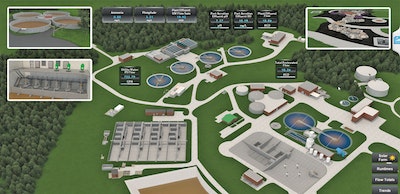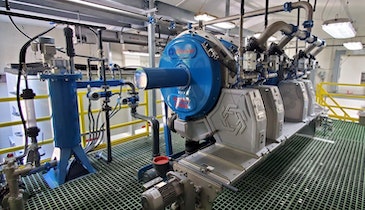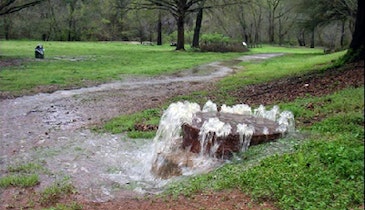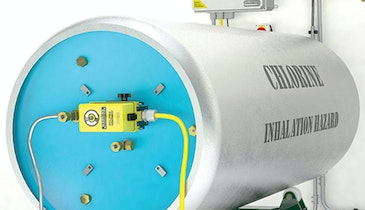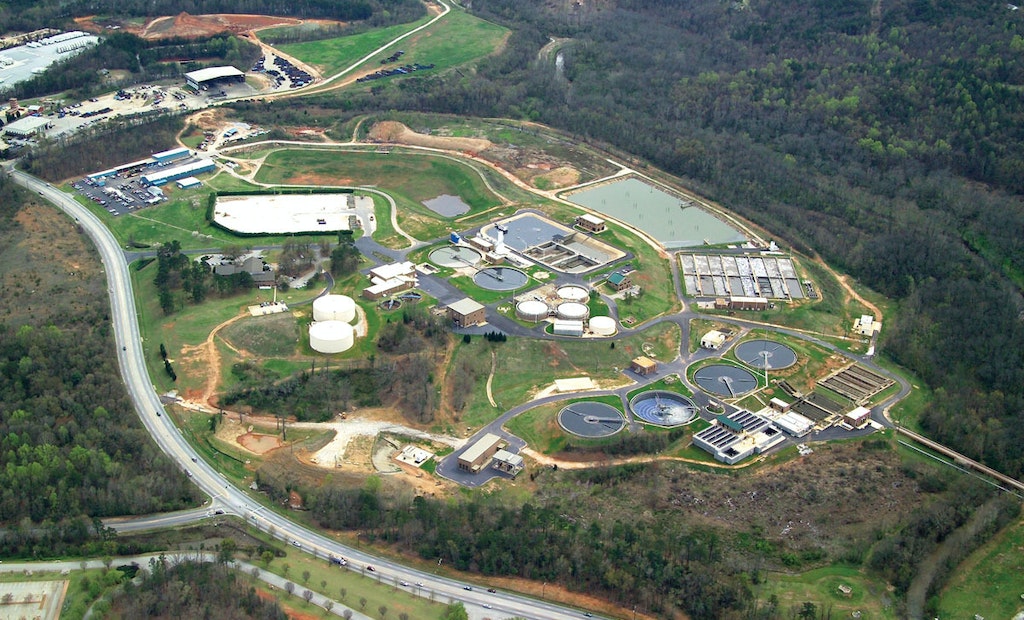
ReWa treatment facilities process more than 40 mgd in a county encompassing 795 square miles with a population of more than 500,000.
Interested in Instrumentation?
Get Instrumentation articles, news and videos right in your inbox! Sign up now.
Instrumentation + Get AlertsFor almost 100 years Renewable Water Resources (ReWa) has been responsible for water and wastewater infrastructure in South Carolina’s Greenville County.
The county encompasses some 795 square miles with a population of more than 500,000. The water and wastewater infrastructure is intricate and robust and includes over 350 miles of pipes connecting the community and providing for future growth and development.
ReWa manages eight water resource recovery facilities (WRRF) that treat more than 40 mgd. The utility also operates 83 pump stations and nine water treatment facilities, each with a self-sufficient treatment process, on-site power generation and multiple gauges, flowmeters and storage tanks.
Starting in 2002, ReWa relied on the AVEVA System Platform SCADA system integrated with WIN-911 remote alarm notification software to monitor and alert the team about any abnormal operating conditions.
This involved a complicated process in which the SCADA system called a mobile phone. Operators would then stop work, answer the call, input a unique identification number and enter an acknowledgement. The process could take up to one minute — a critical loss of time during possible emergencies.
In addition, since the alarm notifications were transmitted via cellphones, calls could break up if the operator was in a part of the facility without good cell service, and the entire identification input process had to be repeated.
Upgrading technology
In 2020 ReWa, WIN-911 and Inframark A&I, the utility’s systems integrator, identified opportunities to improve the WRRF alarming systems by deploying the more streamlined and technologically advanced mobile solution.
Tony Jones, ReWa business analyst, worked with Edward Noyes, application engineer with Inframark A&I to design a system that met the utility’s high security requirements, improved ease and efficiency in operators’ monitoring and acting on SCADA alarms, and deployed a proactive monitoring system to notify ReWa technology personnel in case of a system issue.
The WIN-911 mobile app enhances plant operating efficiency by enabling operators to monitor and act on SCADA alarms using mobile devices with redundant voice and text callouts. “The team quickly adapted to working with the more efficient and robust system,” Jones observes. “They no longer waste time punching in identification codes or depending on intermittent cell service to acknowledge an alarm.”
WIN-911 provides faster response time, which is critical because many alarms involve lost power. In such situations, every minute of delay in getting an alarm message to the team could mean the difference between starting an emergency generator and experiencing an overflow.
Secure monitoring
The system monitors alarms that cover critical functions — pumps, UV disinfection, generators and the utility power — that can stop a process and result in a sewer overflow or a discharge of untreated water.
Highly secure architecture ensures that system integrity is not compromised. Noyes and the Inframark A&I team deployed the highest security levels offered by WIN-911, using intercomponent encryption with a custom-built proactive monitoring system that detects whether WIN-911 and AVEVA are communicating and notifies designated personnel of any issues.
Integration of WIN-911 with the SCADA system offers another layer of security. “It gives ReWa the confidence that they can trust the systems,” says Noyes.
Making a difference
The proactive and continuous monitoring routinely averts problems. In the event that any of the equipment is not operating properly, WIN-911 Interactive alerts the ReWa team via the mobile app, phone call, email or text. One such instance occurred when the team received an alarm related to a power outage at one of the WRRFs.
When a newly installed generator did not automatically start during a power failure, WIN-911 alerted technology staff members, who then began a dialogue with the operations team using the mobile app’s chat feature. This early and real-time intervention enabled ReWa to assess the problem and determine that the generator was improperly wired. In this way they avoided problems an extended power loss would have caused.
“Before the upgrade, ReWa functioned in a reactive mode and waited until the WIN-911 software notified the operations team there was an issue,” says Jones. “We have completely changed that mindset, and they have become more efficient. The IT team knows there is a system problem long before the operations team.”
The future
Named a Utility of the Future by the National Association of Clean Water Agencies, ReWa is committed to enhancing the area’s quality of life through the quality of local waterways. Using advanced technology like AVEVA System Platform with the WIN-911 mobile app helps the team keep that commitment.
“This is a journey,” says Jones. “As a forward-thinking early adopter, ReWa continues to explore technology like WIN-911 that allows us to improve infrastructure and operating efficiency.”
About the author
Cody Bann (cody.bann@win911.com) is director of engineering at WIN-911.
